Minister of Health Dao Hong Lan
* Reporter: Minister, what is the significance of Resolution 72 for the development of the healthcare sector and the health of Vietnamese people?
* Minister of Health DAO HONG LAN : This Resolution is of special importance, continuing to demonstrate the Party's deep concern for the health of each citizen to aim at building a healthy Vietnam, where all people receive health care, improve their physical fitness, proactively prevent diseases, and contribute significantly to promoting the development of a rich, civilized, and prosperous country in the new era.
This is a resolution of strategic, comprehensive and long-term significance, of an action nature, a "Resolution to implement the Resolution" with many policies to supplement, strengthen and concretize previous policies and guidelines, proposing "breakthrough" tasks and solutions to remove and clear "bottlenecks", "knots", difficulties and obstacles from practice to meet the requirements of sustainable development of the country and the expectations of the people, towards the two strategic goals of 100 years of the Party's founding in 2030 and 100 years of national independence in 2045.
* The important highlight of Resolution 72 is to shift the focus from “treatment” to “prevention”, taking preventive medicine and grassroots health care as the foundation, people will have access to quality health services, comprehensive health management right at the commune health station. So how can preventive medicine and grassroots health care take on this responsibility, Minister?
* The quality of service and the efficiency of the health system depend on the following factors: human resources, facilities, equipment and financial mechanisms.
Regarding human resources , primary health care and preventive medicine will prioritize the arrangement and mobilization of resources, have outstanding mechanisms and policies to develop human resources to ensure uniformity in quantity, quality, and structure, especially human resources in remote, disadvantaged, especially disadvantaged, border, and island areas. Commune-level health stations will be consolidated, ensuring human resource structure, sufficient number of doctors according to functions and tasks; maintaining the team of medical staff in villages, residential groups, village midwives, and population collaborators according to functions and tasks.
During the 2025-2030 period, each year, localities will rotate, transfer, and mobilize at least 1,000 doctors to work for a limited time at commune-level health stations; supplement permanent doctors at commune-level health stations, by 2027 there will be at least 4-5 doctors, by 2030 there will be enough doctors according to functions and tasks. The Ministry of Health will resolutely and effectively implement the Project on training and fostering doctors to create a source for commune-level health stations, especially for remote, isolated, disadvantaged, border, and island areas.
Regarding facilities , medicines and basic medical equipment will be guaranteed to meet requirements and tasks, especially in remote, disadvantaged, border and island areas. 100% of commune-level health stations are invested in basic medical facilities and equipment according to their functions and tasks. Regarding the operating mechanism, financial mechanism, functions, tasks and organizational structure of commune-level health stations, they are organized according to the model of public service units, ensuring the provision of basic and essential services for disease prevention, primary health care, medical examination and treatment and social care services.
The state budget plays a leading role in ensuring finance, investing in facilities and medical equipment for primary health care, preventive medicine, and health care for people belonging to social policy beneficiaries, ethnic minority areas, mountainous areas, and areas with difficult or especially difficult socio -economic conditions.
Minister of Health visited and gave gifts to patients being treated at Bach Mai Hospital
* The "free hospital fee" policy is a breakthrough content of the Resolution. 72 is receiving a lot of attention from the people. Can the Minister tell us what benefits the people will enjoy and how this policy will be implemented to ensure fairness and effectiveness?
* Freeing basic hospital fees for all people through health insurance by 2030 is a very humane policy, demonstrating the superiority of our regime, having profound social security significance, satisfying the people, helping to detect diseases early, reducing medical costs, clearly demonstrating the view that people are the central subject. Therefore, the Ministry of Health is urgently developing an implementation project.
This policy must still be based on the pillar of health insurance, and must be implemented with a roadmap. The State and the health insurance fund will pay for basic and essential medical expenses, minimizing the financial burden on people, first of all for social policy beneficiaries, the disadvantaged, and low-income people. For medical services on demand, exceeding the basic level, patients must still pay a part to raise awareness of using services reasonably and saving costs.
Regarding the scope of benefits, from 2026, people will be able to have regular health check-ups or free screening at least once a year and have an electronic health record, managing diseases throughout the life cycle, from the fetus to old age. By 2030, people will be exempted from basic medical examination and treatment costs within the scope of health insurance benefits according to the roadmap.
The ultimate goal is to ensure that all people, regardless of region, rich or poor, have access to essential, basic health services without having to worry about finances. The resolution does not aim for “absolutely free”, but aims to minimize people’s co-payment costs, increase health insurance coverage, reduce deaths due to late detection of diseases and build a fair, equitable, effective, sustainable health system that leaves no one behind.
Minister of Health Dao Hong Lan visited patients and encouraged medical staff at Hai Duong General Hospital.
* Medical human resources, medical ethics and special treatment policies for medical staff are the contents emphasized in Resolution 72. Can the Minister tell us about specific solutions to attract, retain and promote the capacity of medical staff in the coming period?
* In the coming time, the Ministry of Health will focus on training and developing human resources, investing in developing a number of high-quality health training facilities at regional level, while expanding policies to support tuition fees and scholarships for medical students, especially those who commit to serving at the grassroots level, in difficult areas, on borders, and on islands. At the same time, there will be policies to treat and attract health workers strongly enough to ensure they are committed to their work for a long time, wholeheartedly, especially those working in prevention and primary health care.
Doctors, preventive medicine doctors, and pharmacists are ranked from level 2 of the recruited professional title; the preferential occupational allowance is increased to a minimum of 70% for those who regularly and directly work as medical professionals at commune-level health stations and preventive medical facilities; 100% for those who regularly and directly work as medical professionals at commune-level health stations and preventive medical facilities in ethnic minority and mountainous areas, and areas with difficult or especially difficult socio-economic conditions.
Along with that , continue to improve the working environment, ensure safety, reduce pressure on medical staff; innovate the way to manage the provision of medical services according to output quality, meeting the satisfaction of both patients and medical staff. We will continue to coordinate with the authorities to prevent medical violence. From there, build a safe and humane working environment, where medical staff are protected and respected. This is not only a spiritual encouragement, but also contributes to spreading trust in society for doctors.
* Thank you, Minister!
NGUYEN QUOC
Source: https://www.sggp.org.vn/khong-mien-phi-tuyet-doi-vien-phi-ma-giam-toi-da-chi-phi-chua-benh-cho-nguoi-dan-post813203.html


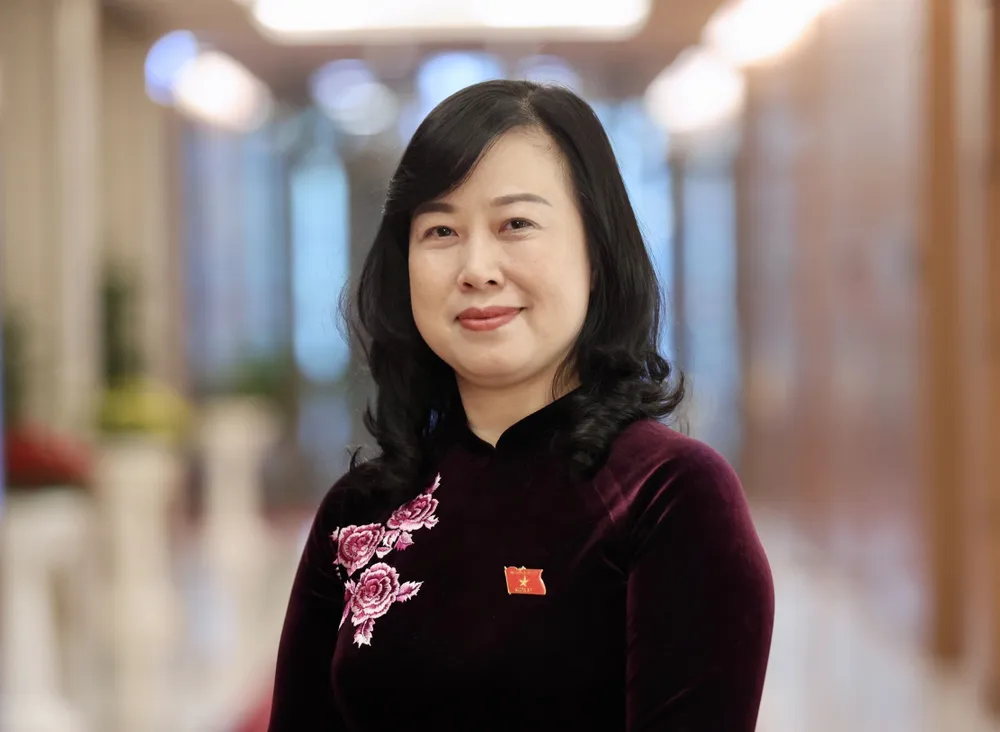
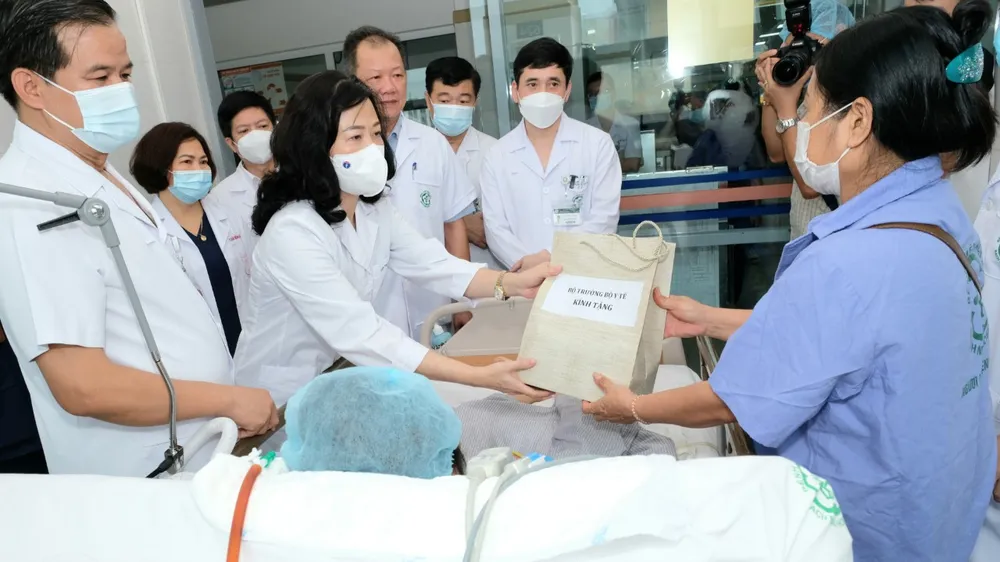
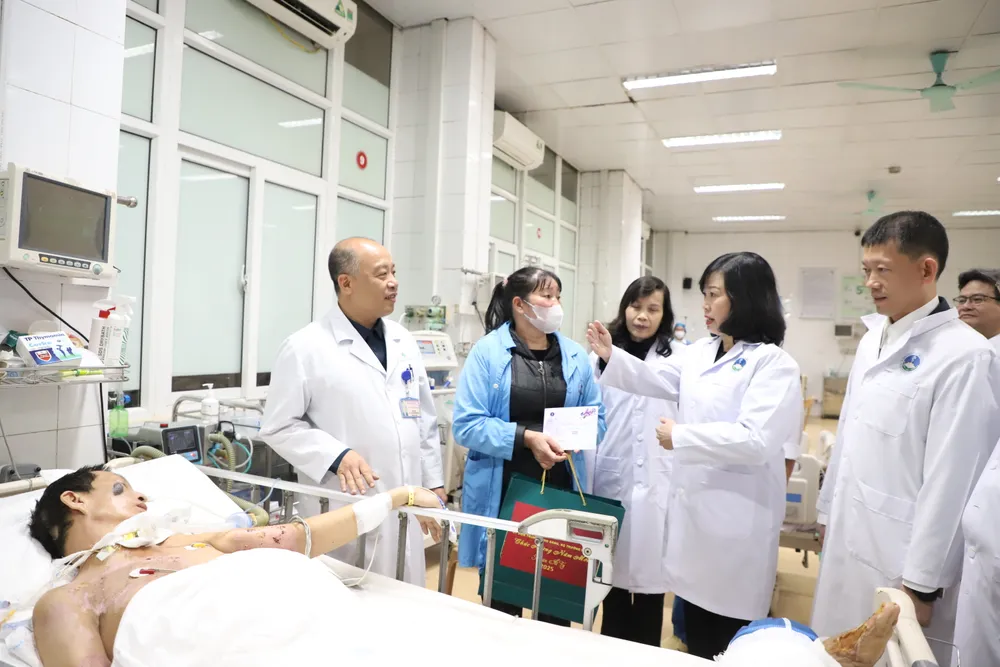

![[Photo] Prime Minister Pham Minh Chinh chairs a meeting on housing policy and the real estate market.](https://vphoto.vietnam.vn/thumb/1200x675/vietnam/resource/IMAGE/2025/11/11/1762838719858_dsc-2107-jpg.webp)

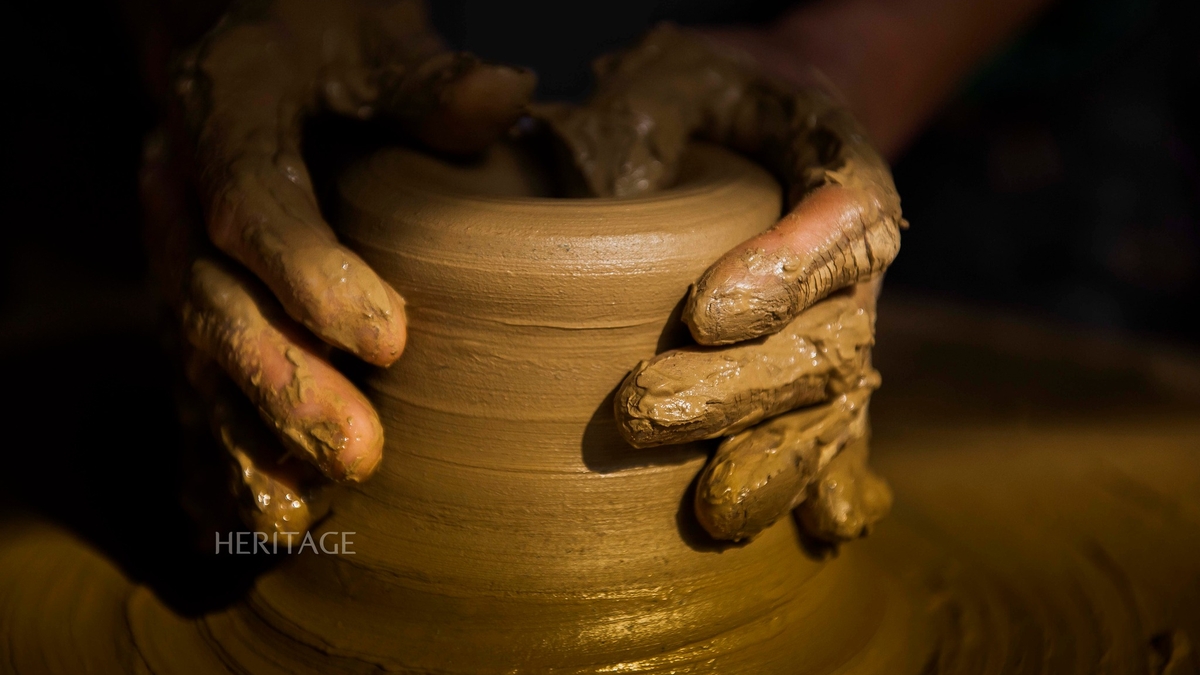
![[Photo] Chu Noodles - the essence of rice and sunshine](https://vphoto.vietnam.vn/thumb/1200x675/vietnam/resource/IMAGE/2025/11/11/1762846220477_ndo_tl_7-jpg.webp)




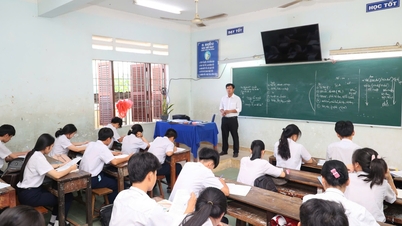

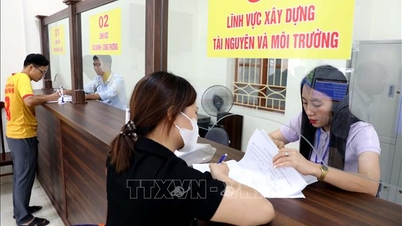
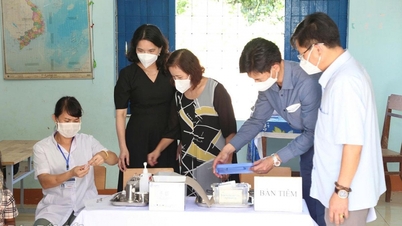

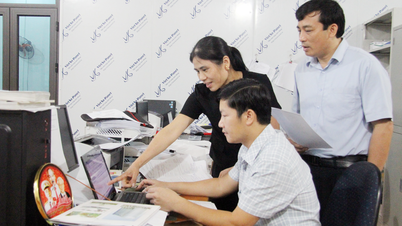






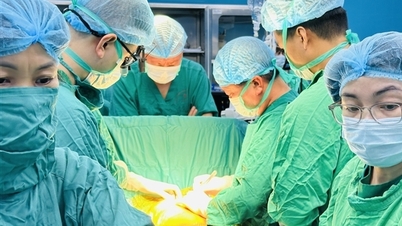



















































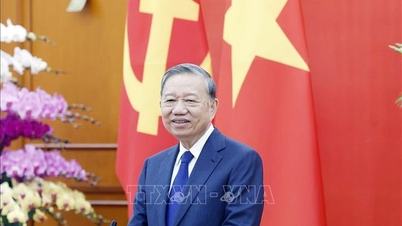












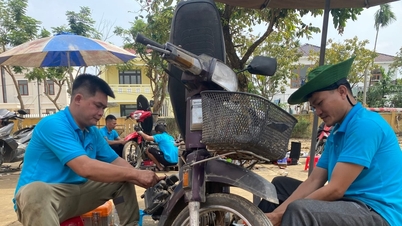









![Dong Nai OCOP transition: [Article 3] Linking tourism with OCOP product consumption](https://vphoto.vietnam.vn/thumb/402x226/vietnam/resource/IMAGE/2025/11/10/1762739199309_1324-2740-7_n-162543_981.jpeg)








Comment (0)